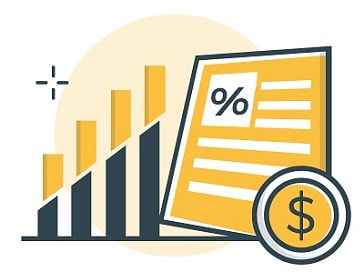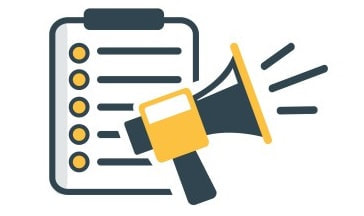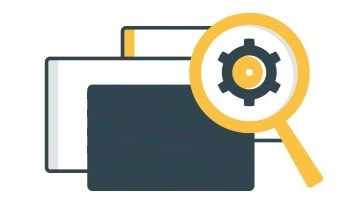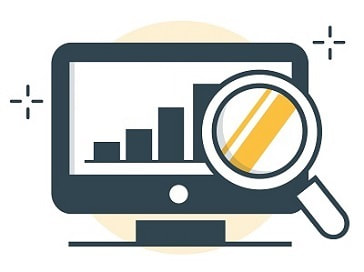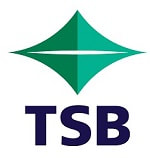Revolving Credit Mortgages - The Definitive Guide for New Zealand Homeowners
We explain how revolving credit mortgages work, the pros, cons, must-know facts and the best offers from the banks such as Kiwibank, Westpac, ASB, BNZ and more offering revolving credit facilities
Updated 12 July 2024
If you have equity in your home, you may tap into it with the Revolving Credit Mortgage ("RCM"). This revolving account works much like an overdraft. You get access to your home’s equity (i.e. the money you've repaid on your mortgage) and can spend it how you want. The RCM becomes your ‘everyday account’ or the account you pay your bills with, use for daily spending, and even deposit your paycheck in, rather than your bank account.
Warning - applying for a Revolving Credit Mortgage requires serious consideration. This guide explains the key facts, pros, cons and what to watch out for, as well as a list of all the latest RCM offers from the banks. We cover:
Know this first: How Revolving Credit Mortgages Work
Who takes out a revolving credit mortgage, and for what reasons?
Warning - applying for a Revolving Credit Mortgage requires serious consideration. This guide explains the key facts, pros, cons and what to watch out for, as well as a list of all the latest RCM offers from the banks. We cover:
- 5 Must-Know Facts About Revolving Credit Mortgages
- Revolving Credit Mortgages FAQs
- Revolving Credit Mortgages - Pros, Cons and Bottom Line
- The Best Revolving Credit Mortgages Currently Available
Know this first: How Revolving Credit Mortgages Work
- Revolving mortgages work like a giant-sized overdraft. Your mortgage becomes your everyday account, and you'll be given a credit limit. Your account balance will go up and down as money is paid in and spent. You'll pay interest on the balance outstanding, which for most people will change daily as transactions occur.
- For example, Matthew and Claire have a $100,000 revolving credit mortgage limit with a 4.00% interest rate. At the start of the month, the full $100,000 limit is outstanding due to the purchase of two cars and a home renovation. At the end of the month, both Claire and Matthew receive wages, which reduces the account balance to $85,000 (as money is paid in, reducing the mortgage balance). They then pay off a $5,000 credit card balance which increases their revolving credit mortgage balance to $90,000 (as money is paid out of the account). Every day, their bank calculates the interest based on the balance outstanding and charges it at the end of the month.
- Unlike normal mortgages, revolving credit mortgages do not have set repayments on set dates. Instead, it's up to the borrower to make repayments when they want to do so. Until that happens, interest keeps on being added to the total outstanding.
- Revolving credit mortgages work best when the balance owed is kept as low as possible. This saves on interest costs and the cost of the mortgage overall.
- Some banks offer revolving credit mortgages with a credit limit that steadily decreases over time. The purpose of this is to help you repay your mortgage in full by limiting the amount you can re-borrow against your home.
Who takes out a revolving credit mortgage, and for what reasons?
- Revolving credit mortgage interest rates are (in most cases) a lot lower than alternative financing for personal loans, car loans and/or home renovation loans.
- This means anyone who wants to borrow to buy a high-ticket item can 'tap the equity' in their home by borrowing against the house. The money can be used for anything.
- Those who can budget and manage their money most effectively will benefit most from a revolving credit mortgage. However, if you take years to repay the balance withdrawn, the total interest costs you pay can be higher than short-term finance (even though the interest rates offered are higher).
5 Must-Know Facts About Revolving Credit Mortgages
Interest accrues dailyAny money you withdraw from the RCM accrues interest daily. The goal is to keep as much money as possible in the account so you don’t accrue interest or you accrue as little interest as possible. When you withdraw funds, pay as much as you can back as often as you can to reduce the interest.
Important: Avoid over-extending
|
Depositing your salary or wages into the mortgage account brings the balance downYou’ll accrue less interest for the time the balance remains low after you deposit your earnings. As you withdraw money to pay your daily living expenses or bills, the balance increases again and interest accrues.
Important: Unlike a traditional mortgage, you don’t have set repayments or particular due dates. Instead, you pay what you want when you want, but the more you pay the balance down, the less interest you pay. For an RCM to be cost-effective and beneficial, you must be disciplined with your spending and focus on saving. |
The interest rates are variable (i.e. they're not fixed)Your interest rate will change with the market, sometimes they’ll be higher, and sometimes they’ll be lower. The best approach is always to save when interest rates are high or low, regardless of the interest rate. Our list of the Best Revolving Credit Mortgages Currently Available outlines the terms and conditions of each bank's RCM.
|
You'll need to balance your drawdowns with repayments to avoid a long-life mortgageIf you use the money to fund a large purchase, such as a car, for example, make sure you make monthly payments at least equal to what a car payment would have cost to keep the interest charges down. If you don’t, you’ll draw the interest out longer, which means the loan will cost you more than a car loan would have with its shorter term.
|
Revolving Credit Mortgages - Frequently Asked Questions
How much equity do you need to get a Revolving Credit Mortgage?
You must have at least 20 percent equity still in the home after taking out an RCM. This gives the bank leverage should you default on your loan.
Is a revolving credit mortgage good if you have an irregular income?
Yes, since there aren’t set repayment amounts or repayment dates, homeowners with irregular income are great candidates for the RCM. You can pay what you can when you can. Of course, you must budget properly, so you can minimise the interest you owe and that accumulates.
Can you reuse funds that you repay?
Yes, just like a credit card, you can draw on your account, use the funds, repay them, and reuse them. You can draw up to your credit limit, and can keep doing that as long as you keep paying your balance down.
Can putting your earnings in the account help lower your interest?
Yes, the more money you put into your mortgage, the less interest you accumulate. You only owe interest on the amounts that are outstanding daily. If you put your earnings toward the mortgage, it lowers your balance and decreases the interest you accrue.
Is the RCM a good idea if you can’t stick to a budget?
No, the RCM shouldn’t be a free-for-all spending account. If you know you’ll overspend because you know the money is there, this isn’t the right account for you.
What's the difference between a revolving credit mortgage and an offset mortgage?
Offset mortgages and revolving credit mortgages are similar, but there are succinct differences. An offset mortgage relies on having cash deposits to 'offset' the mortgage balance owed. You won't earn interest on the cash deposits, but your interest cost will be lower. The two key differences are:
- A revolving credit mortgage combines all of your finances together in a single account (whereas an offset mortgage lets you keep cash deposits in multiple accounts).
- A revolving credit mortgage lets you redraw credit as many times as you want (up to the credit limit). I.e. you can spend and repay as much as you like. This is different from an offset mortgage which doesn't allow such spending (but if you need money, you always have access to your cash deposits).
Revolving Credit Mortgages - Pros, Cons and the Bottom Line
Pros
Cons
Revolving Credit Mortgages: The Bottom Line
Important: Understand Short Term vs Long Term Borrowing Costs
- You have easy access to the funds you need. You don’t have to reapply for a loan or take out a credit card. Any money you have available in your equity is usually yours to use (by way of your credit limit).
- You may save money on credit card interest, personal loans and/or car loans. The interest rate is usually lower, and if you pay the balance down regularly, you’ll pay less interest overall.
- You can reduce your interest charges by depositing your salary and wages to pay down the balance. You may still withdraw from the account as you need it for the daily cost of living, but you’ll lower the interest you owe.
- It’s flexible. You don’t receive your funds as a lump sum or have excessive payments. The RCM is a flexible option to get your hands on the funds you need.
Cons
- It’s easy to overspend if you aren’t careful. You must keep careful track of your spending and manage your income so that you pay down the balance as often as possible, minimising the interest costs.
- It’s easy to pay more interest than you anticipate. For example, if you buy a car with the funds, but you don’t make regular ‘car payments’ to the account, the interest charges will be much higher than what you would have paid on a car loan.
- It’s almost like an always available ATM. You have the funds available and can access them with your debit card or checks. If you aren’t careful, you could get in over your head quickly - the money may be available, but it's not yours if you want to fully repay your mortgage later on (and most people do). Until then, the money is the bank's and it will charge interest on what it lends back to you.
Revolving Credit Mortgages: The Bottom Line
- A revolving credit mortgage won't be for everyone, but it does have key benefits. If you’re good at budgeting, you’ll benefit from such financing. You may save money on interest and you’ll always have access to liquid funds should you need them whether for home renovations or a sudden emergency. But, you must be good at budgeting.
- If you will use the overdraft account as a way to go on spending sprees or sporadic shopping, there is a strong argument against RCMs. While it feels like it offers the freedom to spend, that’s not the case. Every dollar withdrawn is a dollar you'll need to repay, as well as the interest cost.
- Overall, a revolving credit mortgage can help you save money over the life of the loan for big-ticket essentials you'd otherwise have to borrow at higher rates to buy. However, if used incorrectly, interest payments can rack up and lead to more unproductive debts.
Important: Understand Short Term vs Long Term Borrowing Costs
- Overall, if you need to borrow for a car, renovation or another big ticket item, a Revolving Credit Mortgage is a good idea if the interest rate offered is below what you can get from a specialist lender and you know you can repay the balance in the short term. Otherwise, short-term high-interest finance may be cheaper overall.
- For example, borrowing $40,000 for 5 years at 8.50% costs a total of $49,240. However, borrowing the same amount at 4.50% using a revolving credit mortgage and repaying it over 15 years costs $55,080 (calculated using our car finance repayment tool).
- Before going ahead with any decision, carefully budget for the repayment - short-term financing may be cheaper even if the interest rate is higher.
The Best Revolving Credit Mortgages Currently Available
The banks below all offer revolving credit mortgages, and we have ranked them by lowest interest rate.
"Mixed mortgage options" mean the bank allows you to split your mortgage into different types, i.e. fixed-rate repayment, floating-rate repayment, interest-only and/or revolving credit.
"Mixed mortgage options" mean the bank allows you to split your mortgage into different types, i.e. fixed-rate repayment, floating-rate repayment, interest-only and/or revolving credit.
BNZ Rapid Repay Revolving Credit Home Loan
|
The Co-operative Bank Revolving Credit Home Loan
|
Kiwibank Revolving Credit Home Loan
|
TSB Revolving Credit Home Loan
|
ASB Orbit Revolving Credit Home Loan
|
Westpac Choices Everyday Floating Home Loan
|
ANZ Flexible Home Loan
|
Related guides
- Fixed-rate vs floating-rate calculator
- Interest-only mortgage calculators
- Car finance repayment calculator
- Our What is the OCR guide helps explain why interest rates go up and down

